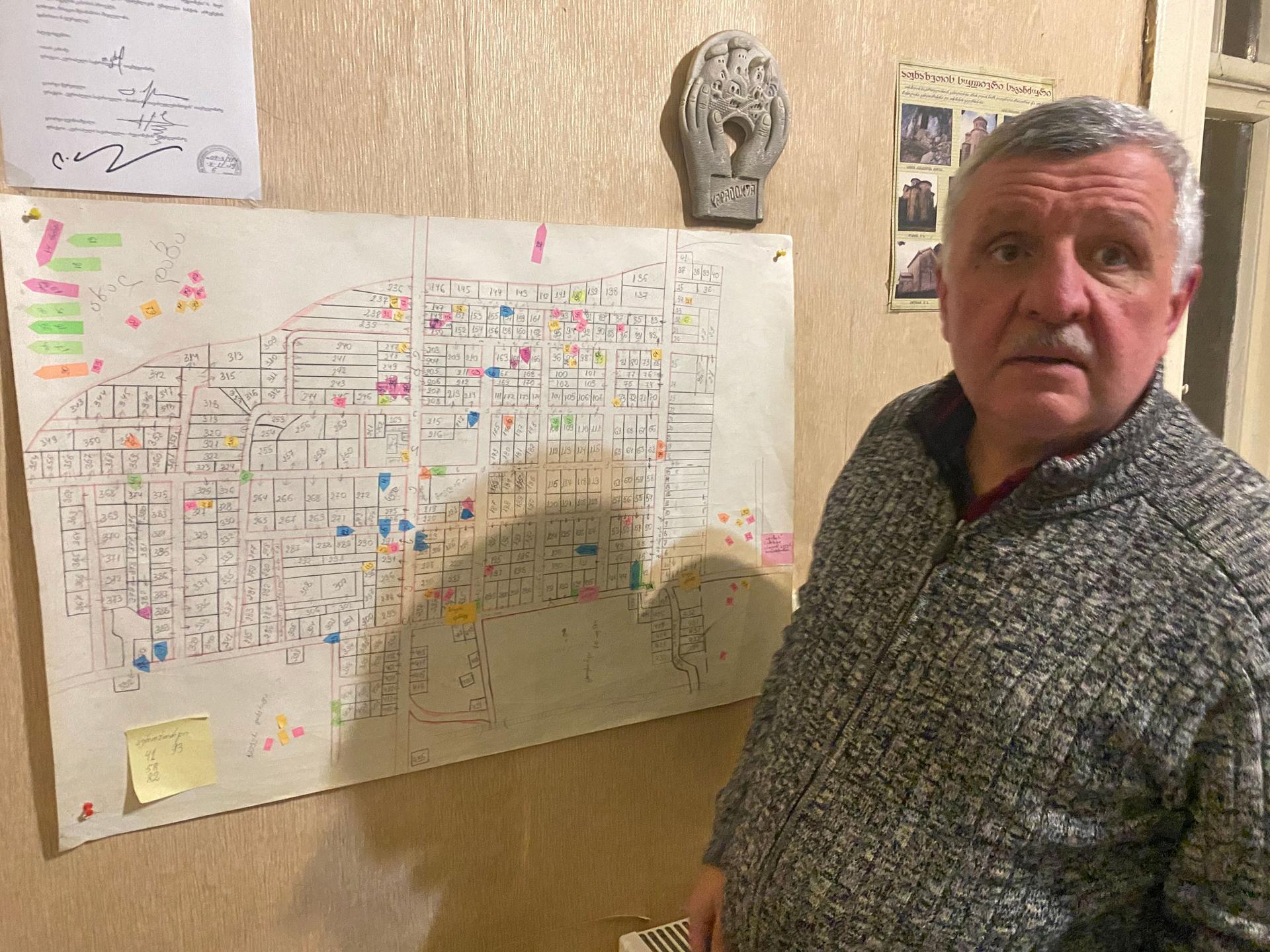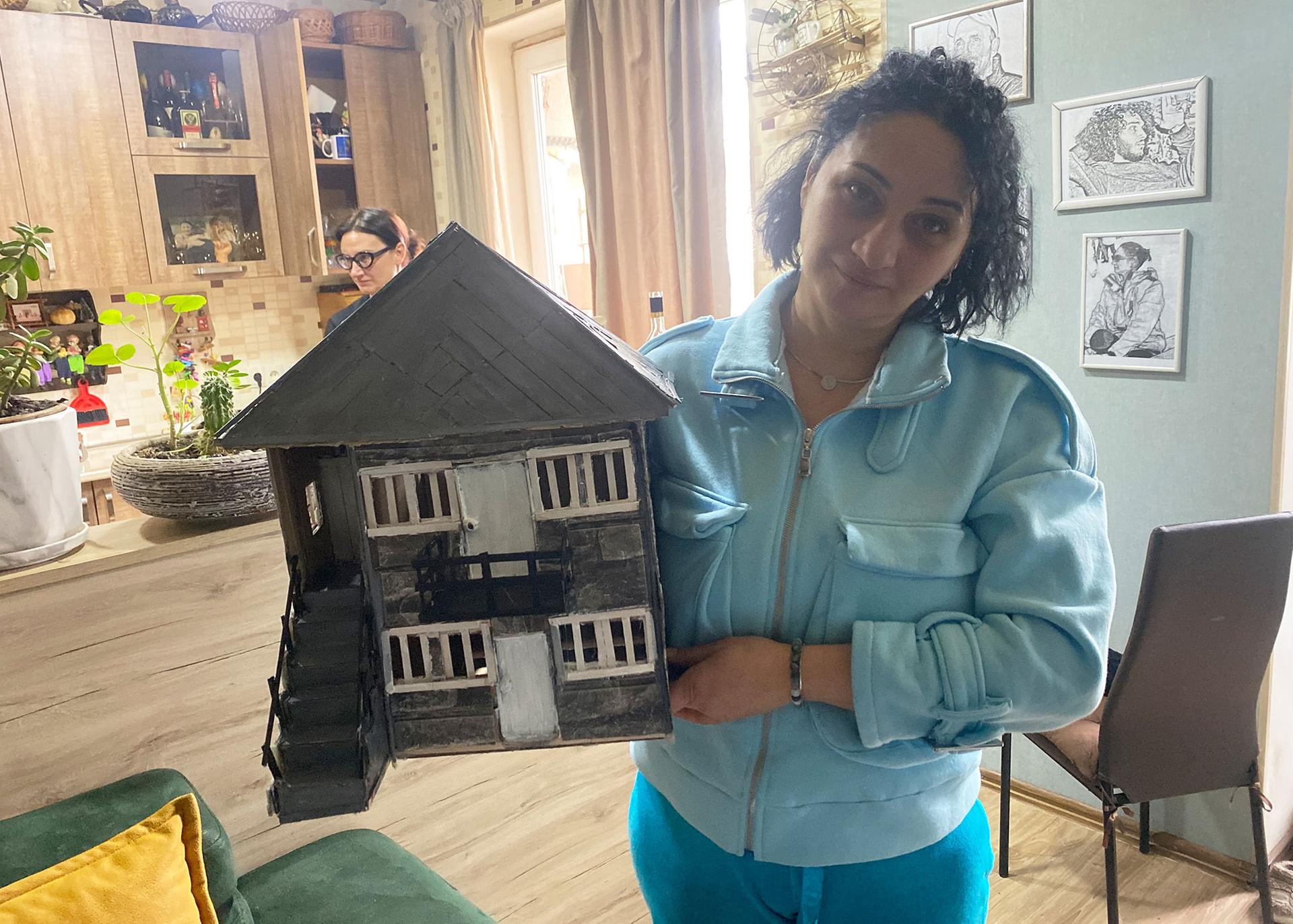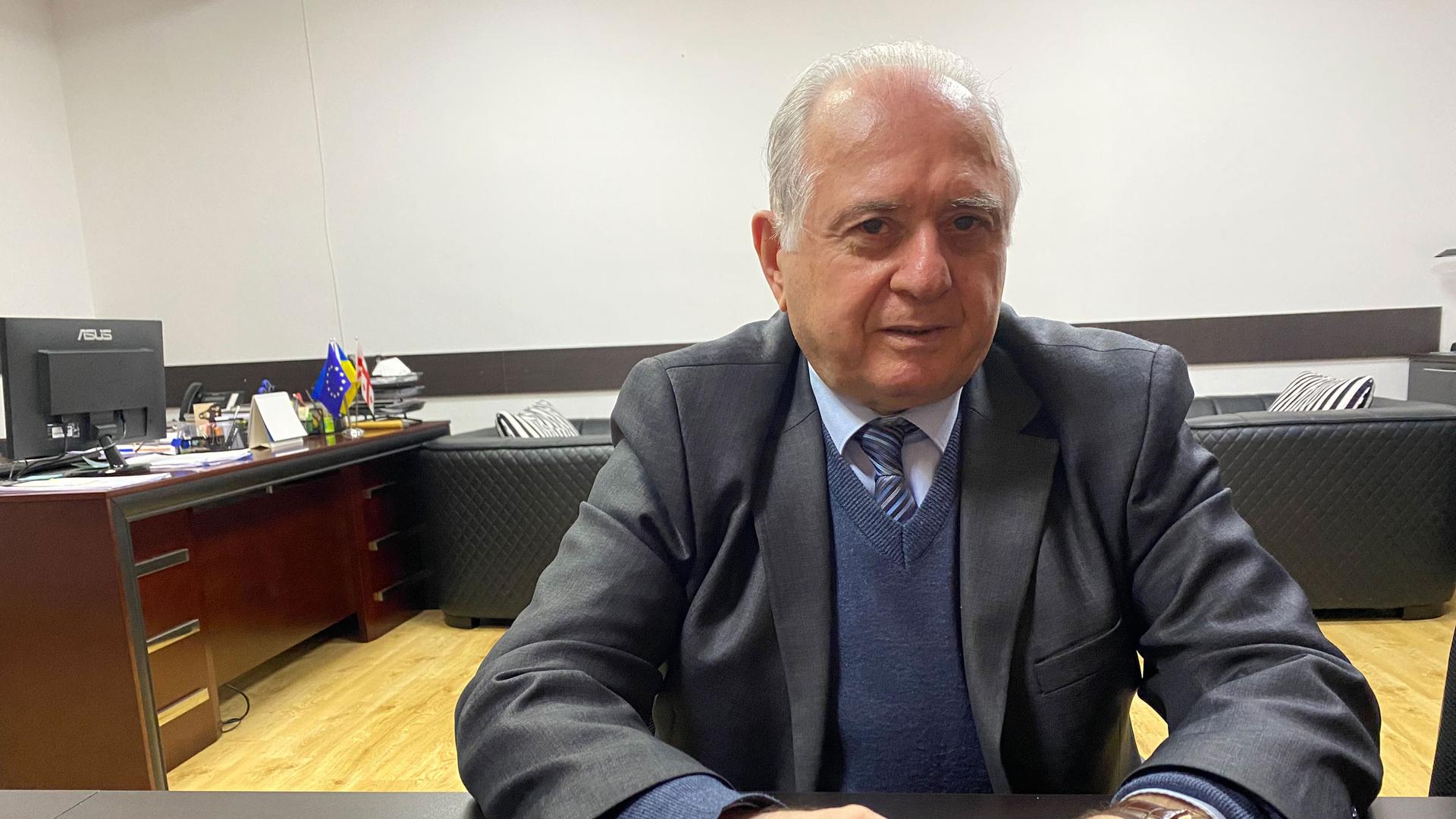Irina Kotua and her husband managed to save enough over the years to add linoleum floors and soft lighting to their apartment, but the graffiti-covered hallways of the old, Soviet-era dormitory where they live in Tbilisi, Georgia, still don’t have lights.
Kotua and her family fled Abkhazia in 1993, when war broke out in the region between Georgian forces and Abkhaz separatists, who were backed by Russia.
“The government didn’t help us with any of this,” Kotua said, gesturing to the renovations in her apartment. “We did this all with our own hands.”
The Georgian lawmakers who represent displaced people like Kotua also fled Abkhazia during the war and formed a government-in-exile in Tbilisi that works like a special branch of Georgia’s government. The exiled government provides some limited services to constituents within Abkhazia, as well as displaced people throughout the country.
Not unlike a US state government, its leadership is responsible for administering budgets and representing their constituents. But many displaced Abkhazians say they are dissatisfied with their leadership — and one of the biggest grievances is decent housing.
“The politicians don’t do anything,” said Malkhaz Pataraia, a lawyer working with the advocacy group Abkhazian Assembly in Tbilisi, which seeks to bring attention to the atrocities committed against ethnic Georgians during the war in Abkhazia.
Pataraia, who also fled the conflict in Abkhazia, is frustrated by the fact the government-in-exile does not hold its own elections — unlike regions in the rest of Georgia.
He said most of the politicians have been in office for more than three decades, and they are all in their 70s or 80s now.

Zhemal Gamakharia, chairman of Abkhazia’s Supreme Council, said their government-in-exile cannot hold elections until Russian forces leave Abkhazia and the region falls back fully into Georgia’s control before they can hold a free and fair election.
The international community still recognizes Abkhazia as belonging to Georgia. Yet, Abkhazia declared independence with its own government, which is closely allied with Russia. And only a handful of countries — including Russia — recognize Abkhazia’s independence.
Moscow gives Abkhazia’s government financial support, and Russian soldiers control checkpoints into the region. Many Georgians consider Abkhazia occupied by Russia.
Despite the hostilities between the government-in-exile and the Georgians they represent, both groups still have not given up hope that they will one day return home to Abkhazia.
In her spruced-up apartment in Tbilisi, Kotua recently built a model house of the one she fled back in 1993.

It stands in her living room as a memory of her past life, and the home she hopes to one day reclaim when Russian forces leave Abkhazia and her hometown becomes a fully integrated part of Georgia once again.
